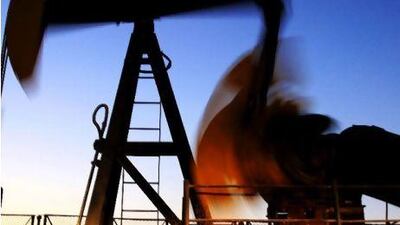Opec's gathering in Vienna last week ended in "one of the worst meetings we have ever had", according to the Saudi oil minister Ali al Naimi.
The lack of a resolution to raise oil production in the face of tightening markets was first received as bad news by consumers, prices rising US$2 in response.
Yet the real losers are those who said "No" - Algeria, Angola, Ecuador, Venezuela, Iran, Iraq and Libya.
Three hours of argument, the loss of all Libyan exports, the undeniable evidence of oil prices nearing $120 a barrel and Opec's own research showing increased demand of 2 million barrels per day (bpd) in the third quarter this year failed to convince the refuseniks.
The original "Mr No", the former Soviet foreign minister Andrei Gromyko, could not have stonewalled more effectively.
This meeting simply demonstrated what has been evident since the 1970s - that Opec acts effectively only in a crisis.
The producers' organisation cut output decisively in March 1999 following the Asian financial crisis, and again in December 2008 when the global recession pushed prices to $34 a barrel. When times are comfortable, or when a tight market badly needs more oil, Opec is ineffective because of the basic divergence in interest between its members.
The opponents of a production rise simply played a weak hand badly. Had they accepted the clear evidence of a need for higher output, they might have been able to reach a reasonable compromise with the Saudis.
Now Saudi Arabia, and its Gulf allies Kuwait, Qatar and the UAE, will simply go ahead and increase production, since they are the only Opec members able to do so. Before the meeting, analysts were suggesting a possible increase of 500,000 bpd. Now Saudi Arabia has announced it will raise production from 8.8 million bpd to 10 million, its highest level since at least the early 1980s, and possibly a record. Kuwait has about 290,000 bpd of spare capacity and the UAE 230,000 bpd.
These three countries would prefer to deploy some of their spare capacity when, as currently, market conditions permit. They are concerned about the potential for expensive oil to push vulnerable economies into a "double-dip" recession and trigger another price slump. In the longer term, they do not want to give further incentive for new technologies that would compete with oil, or for the development of high-cost frontier petroleum provinces.
Nor, politically, are any of the Gulf Four in a mood to give ground to a geopolitical adversary.
Mohammad Ali Khatibi, Iran's Opec governor, blamed the Saudi position on political influences, implicitly the US. "Perhaps there is a pressure on them … Some consumer countries may have exerted pressure on them or they had special demands," he said.
But although the US no doubt expressed its wishes in this case, for once American and Saudi interests happened to coincide.
The non-GCC Opec members have simply ruled themselves out of having any influence on the organisation.
The only way they can negotiate on equal terms with the Saudis is to develop realistic, credible, financeable plans for output growth, then execute them.
Angola, Ecuador and Algeria are less significant players with limited room for expansion. Libya can be ignored until the war against Muammar Qaddafi is over and exports resume.
Iraq is something of a special case, since it is the only Opec member executing large expansion projects.
The comment by the Iraqi oil minister Abdul Kareem al Luaibi on the sidelines of the Vienna meeting, that the production target would be cut from 13 million bpd to between 7 million and 8 million bpd, makes no difference: no analyst thought the higher target was realistic anyway.
Yet Baghdad could have bought itself some goodwill with Riyadh before the inevitable clash over quotas in three or four years when Iraq is ready to rejoin Opec's system.
So the spotlight is really on Iran and Venezuela. Through mismanagement, hostility to foreign investment and (in Iran's case) sanctions, both have failed to make the most of their vast hydrocarbon endowment, even as their budgets become ever more dependent on oil revenues.
But the Saudis and their Gulf allies also have a part to play. The recent Aramco announcement on accelerating development of the giant Manifa heavy oilfield and rejuvenating Safaniya, the world's largest offshore field, is just a first step.
To continue wielding the big stick in Opec, Saudi Arabia must lay out detailed plans to produce 15 million bpd or more, even if not all that capacity is needed immediately.
Kuwait also needs to step up its expansion projects, long delayed by political wrangling between parliament and factions of the Al Sabah family. Foreign expertise, however unpalatable domestically, is essential.
The breakdown of these talks, however predictable, is mildly negative for oil prices.
The Opec unity of 2009 has evaporated, and its members have returned to a zero-sum struggle, at least until the next crisis arrives.
Robin Mills is an energy economist based in Dubai, and the author of The Myth of the Oil Crisis and Capturing Carbon


